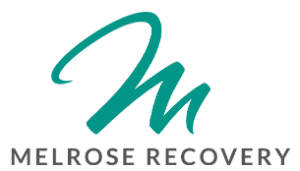Ativan Withdrawal Symptoms
We Can Regret Less And Be Grateful For What is Good in Life
Ativan Withdrawal Symptoms – Welcome to Melrose Recovery, your pathway to transformation and healing. Located in the vibrant heart of Los Angeles, California just moments away from iconic Hollywood and the picturesque beaches of Santa Monica and Venice, we are dedicated to changing lives. Since 2015, our comprehensive Ativan addiction and abuse treatment approach encompasses detoxification, residential care, and aftercare services, all tailored to meet each individual’s unique needs on their recovery journey.
Led by a compassionate team of addiction professionals and counselors, we offer a range of therapy programs designed to support and guide individuals suffering withdrawal effects of Ativan toward lasting sobriety. At Melrose Recovery, we believe in the power of personalized care and diverse treatment options to pave the way for a brighter future.

Understanding Ativan Addiction and Abuse – Ativan Withdrawal Symptoms
What Is Ativan?
Ativan, the brand name for lorazepam, is a fast-acting benzodiazepine commonly prescribed to treat anxiety, insomnia, and seizures. It works by calming overactive brain activity through its effect on the neurotransmitter GABA (Gamma-Aminobutyric Acid). While effective for short-term use, Ativan carries a high risk of dependence and addiction, especially when taken over extended periods.
How Ativan Addiction Develops – Ativan Withdrawal Symptoms
Ativan is a powerful drug with a significant potential for abuse. Individuals who use Ativan—whether as prescribed or recreationally—may develop a tolerance over time, needing higher doses to achieve the same calming effects. This cycle often leads to physical and psychological dependence.
Risk factors for developing an Ativan addiction include:
-
A personal or family history of substance abuse
-
Untreated mental health conditions
-
Prolonged use beyond the prescribed period
Common street names for Ativan include “goofballs,” “heavenly blues,” “stupefy,” or simply “benzos.”
Signs of Ativan Addiction – Ativan Withdrawal Symptoms
People struggling with Ativan addiction may continue using the drug despite the negative consequences. These can include:
-
Strained relationships with family and friends
-
Problems at work or school
-
Risky or dangerous behavior
-
Loss of interest in hobbies or responsibilities
-
Financial troubles
-
Social withdrawal
Even when aware of the harm, many individuals find it difficult to stop due to intense cravings and uncomfortable withdrawal symptoms. In such cases, professional treatment—such as medically supervised detox, therapy, and rehabilitation—is often necessary for recovery.
How Ativan Works and Its Effects – How Ativan Works and Its Effects
Ativan typically takes 45 minutes to 2 hours to take full effect and can stay in the body for up to 100 hours. It’s usually prescribed as an oral tablet but can also be administered intravenously by medical professionals. Because of its potency, Ativan is rarely prescribed for longer than four months.
When taken as directed, Ativan can effectively reduce anxiety and aid sleep. However, in higher doses or when misused, it can produce a temporary euphoric high, followed by deep relaxation and drowsiness. Effects of misuse can include:
-
Euphoria
-
Calmness
-
Muscle relaxation
-
Sedation or drowsiness
What Counts as Ativan Abuse?
Abuse occurs any time Ativan is used outside its prescribed guidelines. This includes:
-
Taking higher doses than prescribed
-
Using it more frequently than instructed
-
Taking it without a prescription to get high
Because Ativan is a legal prescription medication, some people may not realize they’re misusing it until dependence sets in.
The Dangers of Mixing Ativan with Other Substances – Ativan Withdrawal Symptoms
Ativan is frequently used alongside other substances, which increases the risk of severe health complications or overdose. Dangerous drug combinations include:
-
Alcohol: Intensifies Ativan’s sedative effects, which can result in respiratory failure, coma, or death.
-
Methadone: Combining two central nervous system depressants significantly increases overdose risk.
-
Cocaine or Amphetamines: Ativan may be used to offset the effects of stimulants, but this combination stresses the body and can be unpredictable.
Warning Signs of Ativan Overdose – Ativan Withdrawal Symptoms
An overdose can be life-threatening, especially when Ativan is mixed with other drugs. Symptoms of overdose include:
-
Confusion or disorientation
-
Slurred speech
-
Loss of coordination
-
Muscle weakness
-
Low blood pressure
-
Shallow or slowed breathing
-
Unconsciousness or coma
Getting Help for Ativan Addiction
Quitting Ativan can be extremely challenging without support. Withdrawal symptoms can range from anxiety and insomnia to seizures in severe cases. Fortunately, recovery is possible through:
-
Medical detox programs to manage withdrawal safely
-
Therapy and counseling to address the root causes of addiction
-
Inpatient or outpatient rehab programs tailored to individual needs
If you or someone you know is struggling with Ativan misuse, seeking professional help is the first step toward recovery.
Key Statistics on Benzodiazepine Misuse (Including Ativan) in the United States
-
General Misuse Rates: Approximately 2.2% of U.S. adults misused benzodiazepines in the past year. This translates to about 5.3 million individuals.
-
Ativan-Specific Data: While exact figures for Ativan are not specified, lorazepam is among the top five most commonly misused benzodiazepines.
-
Emergency Department Visits: Between 1998 and 2008, hospital incidents related to lorazepam increased by 300%. In 2010, there were nearly 35,000 emergency room visits due to lorazepam.
-
Adverse Events: From January 2004 to September 2023, there were 174,145 reports of adverse events associated with lorazepam in the FDA Adverse Event Reporting System (FAERS).
-
Overdose Deaths: In 2021, benzodiazepines were involved in more than 12,000 overdose deaths, often linked to recreational use—particularly when combined with other substances like alcohol, cocaine, or opioids.”
Demographics and Patterns of Misuse – Ativan Withdrawal Symptoms
-
Age and Gender: Misuse of benzodiazepines, including Ativan, is more prevalent among adults aged 50–64 years. Women and non-Hispanic white individuals report the highest rates of use.
-
Sources of Misuse: The most common source of misused benzodiazepines is from a friend or relative, accounting for nearly 70% of cases.
-
Reasons for Misuse: Individuals often misuse benzodiazepines to relax or relieve tension, with older adults more likely to misuse them to help with sleep.
Risks Associated with Ativan Misuse – Ativan Withdrawal Symptoms
-
Polysubstance Use: Combining Ativan with other substances, such as alcohol or opioids, increases the risk of overdose and fatal outcomes.
-
Dependence and Addiction: Approximately 35% of individuals who take benzodiazepines like Ativan for more than four weeks will become dependent
Conclusion – Ativan Withdrawal Symptoms
While specific 2024 statistics on Ativan abuse are not readily available, the broader data on benzodiazepine misuse indicate a significant public health concern. Given Ativan’s potential for misuse, dependence, and overdose, it’s crucial for healthcare providers to monitor its use closely and for individuals to adhere strictly to prescribed guidelines.
If you or someone you know is struggling with Ativan misuse or addiction, seeking professional help is essential. Treatment options, including therapy and medication-assisted treatment, can provide support and facilitate recovery.
Ativan Addiction Treatment in Los Angeles
Depending on your situation and needs, seeking out a support group or additional, individual counseling can provide the necessary tools to stay sober. If you or someone you love is struggling with an Ativan addiction, contact Melrose Recovery now!
Pros and Cons of Ativan
25 Pros of Ativan (Lorazepam)
-
Effective for Anxiety – Rapid relief of acute anxiety symptoms.
-
Fast-Acting – Effects usually begin within 30–60 minutes.
-
Useful for Panic Attacks – Can quickly stop or reduce the severity of a panic attack.
-
Preoperative Sedation – Commonly used to calm patients before surgery.
-
Muscle Relaxant – Helps reduce muscle spasms and tension.
-
Anti-Seizure Properties – Used to treat status epilepticus and seizure clusters.
-
Helps With Insomnia – Short-term aid for difficulty falling or staying asleep.
-
Reduces Agitation – Calms individuals in psychiatric or emergency settings.
-
Alcohol Withdrawal Treatment – Helps reduce symptoms like tremors and seizures.
-
Minimal Cardiovascular Side Effects – Usually well-tolerated in healthy patients.
-
Can Be Given IV or IM – Useful in emergency medical settings.
-
Short Half-Life – May be preferred for short-term anxiety treatment.
-
Widely Studied – Extensive clinical use and data available.
-
Low Liver Enzyme Interaction – Doesn’t significantly affect liver enzymes.
-
Can Reduce Nausea – Sometimes used as an antiemetic adjunct.
-
Multiple Forms Available – Oral, injectable, and sublingual options.
-
Controlled Use for Insomnia – Helpful when used briefly for sleep disorders.
-
Reduces Anticipatory Nausea in Chemotherapy – When used with other agents.
-
Can Help Manage Acute Mania – As part of a treatment plan in bipolar disorder.
-
Safer for Short Procedures – Compared to some longer-acting sedatives.
-
Good Tolerability in the Elderly (with caution) – If dosed appropriately.
-
Effective During Medical Procedures – E.g., MRIs for claustrophobic patients.
-
Can Be Used During Pregnancy (with caution) – Category D but sometimes warranted.
-
Well-Known Side Effect Profile – Easier to monitor and manage.
-
Cost-Effective Generic Available – Lorazepam is widely available and inexpensive.
25 Cons of Ativan (Lorazepam)
-
High Risk of Dependence – Especially with long-term use.
-
Withdrawal Symptoms – Can be severe and include seizures or rebound anxiety.
-
Sedation – Causes drowsiness and lethargy in many users.
-
Tolerance Development – Reduced effectiveness over time.
-
Cognitive Impairment – Affects memory, attention, and decision-making.
-
Addiction Potential – Particularly in people with substance use disorders.
-
Short-Term Use Only – Not ideal for chronic anxiety or insomnia.
-
Respiratory Depression – Dangerous when mixed with alcohol or opioids.
-
Impaired Coordination – Increases risk of falls, especially in the elderly.
-
Mood Changes – Can cause depression or irritability.
-
Amnesia – Especially anterograde amnesia (difficulty forming new memories).
-
Contraindicated in Pregnancy (Risk Category D) – Possible birth defects or withdrawal in newborns.
-
Paradoxical Reactions – Agitation, aggression, or hallucinations in rare cases.
-
Drug Interactions – Especially with CNS depressants (e.g., alcohol, opioids).
-
Not a Cure – Only masks symptoms, doesn’t treat underlying condition.
-
Driving Impairment – Affects motor skills and judgment.
-
Elderly Risk – Increased confusion and fall risk in older adults.
-
Tapering Required – Abrupt discontinuation can be dangerous.
-
Can Worsen Depression – Especially in susceptible individuals.
-
Limited Long-Term Data – Chronic use is not well studied.
-
Rebound Anxiety – Symptoms can worsen once the drug wears off.
-
Poor Sleep Architecture – Disrupts natural sleep cycles.
-
Risk of Abuse – Often misused recreationally or without prescription.
-
Not Ideal for PTSD – May interfere with therapeutic progress.
-
Stigma – Some patients may face judgment for benzodiazepine use.
Don’t Wait to Look for a Drug Addiction Treatment Program
Get In Touch
info@melroserecovery.com
501 North Mariposa Ave, Los Angeles, CA 90004








